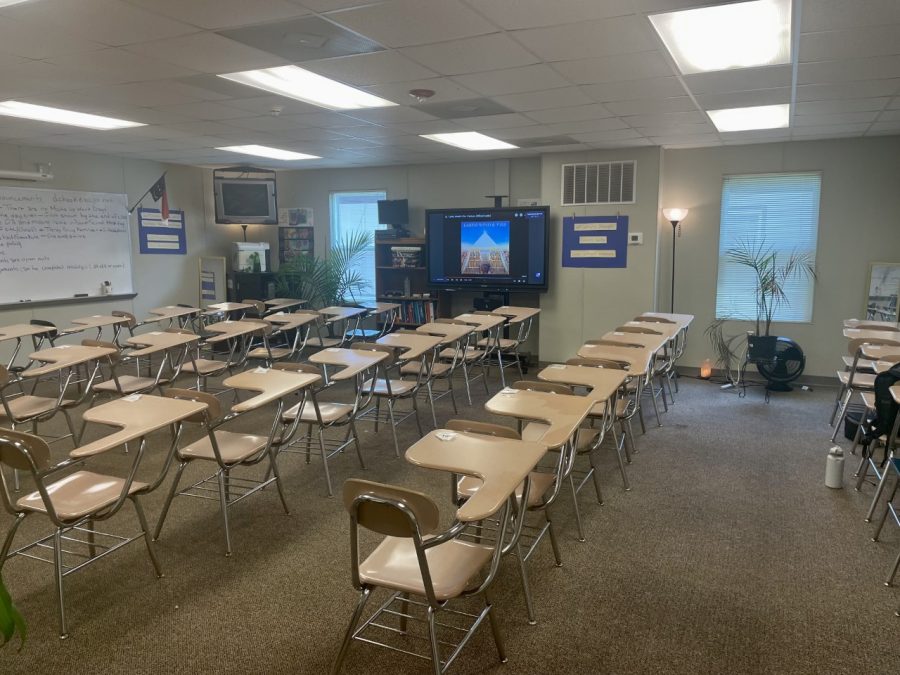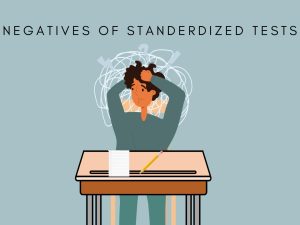Wakefield plans for AP African American Studies course
In the near future, students across the country, including at Wakefield High School will be able to register for an Advanced Placement African American Studies course.
May 17, 2023
In 2021, College Board announced that they would be developing a pilot program for a new Advanced Placement course: African American Studies. The first phase of the program launched at the beginning of this school year, with 60 schools throughout the nation adding the course to their curriculum. The next phase starting in the 2023-24 school year will expand the program to hundreds of more schools. By the 2024-25 school year, all schools across the nation will be able to offer the course to students, including students at Wakefield High School. It will also be accepted as a college credit, just like all other AP courses.
According to the course framework, it explores all aspects of African American history, starting with ancient African civilizations, continuing to The Middle Passage, the Civil Rights movement and up to black culture today in America. The curriculum also dives into key black figures throughout history and their contributions.
Lance Atkinson, chair of the Social Studies Department at Wakefield, believes that the course will be an exciting opportunity for students.
“It truly is exciting and [College Board] has [designed] the course so that it will be very different from the rest of the social studies classes and AP in general,” Atkinson said.
While this course will take a different approach to traditional AP classes, it will still be rigorous and diligent in teaching African American history.
“The rest of the AP classes are very writing and test heavy, and the African American course will be very different [from] that,” Atkinson said. “In fact, it will be project-based activities and assignments.”
Recently in the news, the course has faced a lot of pushback from certain political figures. Specifically, Florida Gov. Ron DeSantis has publicly spoken about his pushback with the course, with claims that the course would push “woke” initiatives in the classroom. The Florida Department of Education also sent a letter to the director of the College Board that stated that the course would push political agendas in classrooms and wouldn’t be beneficial to students’ courseloads.
Deja Moss, a history teacher at Wakefield who has taught African American history, believes that the stories of black success in America is something that should be shared with students.
“Black success was something that was promoted and encouraged and it was thriving and supported religiously, economically and politically,” Moss said. “If it was good then why not share it, and that’s a perspective that a lot of people deny exists within communities of color that I like reminding students of.”
Beyond sharing stories of black excellence, the course will also serve as a vessel to create a safe space for African American students. According to the Education Trust, black students make up 15% of enrolled high school students, but only 9% of students enrolled in AP classes.
Synae Alexander, senior and president of the Black Student Union at Wakefield, sees the course as a way for more African American students to feel comfortable in AP classrooms.
“I also think it helps our African American students [to not only] challenge themselves but also feel comfortable,” Alexander said. “I’ve taken AP classes and been one of two black people, and it could feel uncomfortable, but I believe this AP class would be diverse.”
Naomi Steele, senior and vice president of the Black Student Union is also eager for a class that will go beyond the traditional curriculum that she learns in her English and history classes.
“Many students at school have spoken up in history and English classes about wanting to learn more about black experiences and stories,” Steele said. “So, I believe that these courses will create a definite space for these conversations to be had.”
Tiffany Timmons teaches African American Literature at Wakefield. She hopes the class will serve as a way for all students to gain new perspectives and learn about the experiences of African Americans throughout history and today.
“I would hope that it would open up some perspective for non-African American students, and give them some fresh perspectives,” Timmons said. “I would like for the student body to see where they stand in society as change agents and what they can do beyond Wakefield to make a change.“
The course will be eligible for students to take at the start of the 2024-25 school year and tenth through twelfth-grade students will be able to add it to their course load.
“Overall, I think this course is long overdue and needed to open the floor for education tailored to reflect the diversity of not only Wakefield but Wake County as a whole,” Steele said.










Emily Dudash • May 17, 2023 at 6:23 pm
Jami this is such a well written article! This is such an important topic and I’m so glad that you covered it!